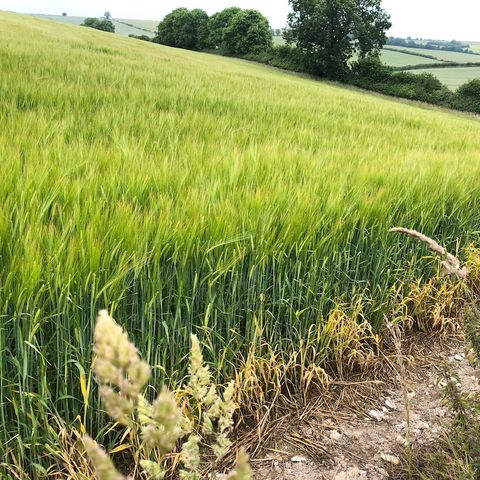Why meat substitutes are "just not good enough"

Jan 20, 2023 ·
25m 43s
So far, on this podcast, we’ve discussed issues including digitalisation, soil carbon and alternative proteins. This week, I wanted to broaden out, and discuss the whole range of technologies connected...
show more
So far, on this podcast, we’ve discussed issues including digitalisation, soil carbon and alternative proteins. This week, I wanted to broaden out, and discuss the whole range of technologies connected with a low-environmental-impact transition in global agriculture.
I interviewed two global research strategists at Rabobank’s food and agribusiness division, Cyrille Filott and Cindy van Rijswick, with a downstream and upstream focus respectively.
Rabobank is a Dutch cooperative bank. It is the biggest lender to farmers in its home market, the Netherlands, but has a large market share in food and agribusiness across the value chain in multiple other jurisdictions including the United States and Australia, from farmers to food retailers, both in lending and in equity investing.
Rabobank is prioritising not one but five transitions in agriculture: supporting regen ag; restoring nature; diversifying our protein supply; reducing food waste; and improving farmer livelihoods in developing countries. The underlying driver is the bank’s membership of the net zero banking alliance, under the science-based targets initiative.
Key observations from this podcast include:
show less
I interviewed two global research strategists at Rabobank’s food and agribusiness division, Cyrille Filott and Cindy van Rijswick, with a downstream and upstream focus respectively.
Rabobank is a Dutch cooperative bank. It is the biggest lender to farmers in its home market, the Netherlands, but has a large market share in food and agribusiness across the value chain in multiple other jurisdictions including the United States and Australia, from farmers to food retailers, both in lending and in equity investing.
Rabobank is prioritising not one but five transitions in agriculture: supporting regen ag; restoring nature; diversifying our protein supply; reducing food waste; and improving farmer livelihoods in developing countries. The underlying driver is the bank’s membership of the net zero banking alliance, under the science-based targets initiative.
Key observations from this podcast include:
- About 70% of the total supply chain CO2 emissions of food companies come from farmland or packaging. Retailers will thus drive change on farmland, to reach net zero targets under the science-based targets initiative - “They will push it into the supply chain, changes will have to happen at the farm-level.”
- Precision agriculture robotics, including automated weeding systems, are now emerging at the field level, and can significantly drive down herbicide use.
- System change within conventional agriculture is also growing, including trends to increase biodiversity, such as strip cultivation, changing crops and re-wilding.
- Vertical farming (local indoor enterprises) has sustainability issues around very high electricity use, notwithstanding a small land footprint and low chemical and water use.
- Gene editing and other crop breeding approaches are longer term bets, not least because breeders are still heavily focused on yield and consumer traits, over sustainability.
- Meat substitutes have “hit a snag” on texture and flavour, at the consumer level - “There was a lot of hype, a lot of money was spent on marketing. But the products are just not good enough right now.” The analysts quoted falling sales at some companies (Beyond Meat total sales fell in the three and nine months to October 2022, year on year).
- The B2B (business to business, as opposed to selling direct to consumers) market for alternative proteins is a bigger opportunity right now, such as the market for butter substitutes. Once again, this is partly driven by food companies signed up for net zero targets. “There is a climate element to it.”
- There is year on year growth in sustainable inputs such as biocides and biostimulants, to substitute for chemical pesticides and fertilisers, especially in controlled environment agriculture, but also at the field level in certain countries like Brazil. “Farmers have to see that it is working before they believe it and buy it.”
- Rabobank incentivises a cleaner food system by offering sustainability linked loans, and information outreach to clients on sustainability topics.
Information
| Author | Gerard Wynn |
| Website | - |
| Tags |
Copyright 2024 - Spreaker Inc. an iHeartMedia Company
